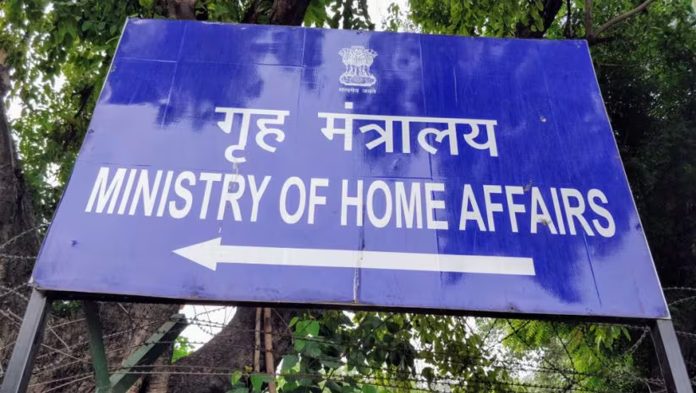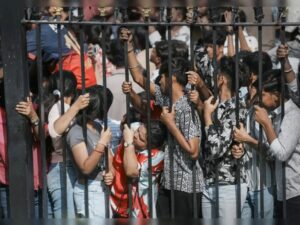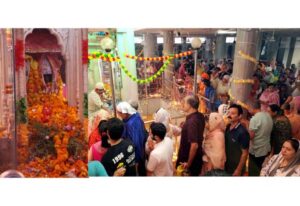



In a major step that could pave the way for the deportation of illegal Rohingya and Bangladeshi immigrants residing in Jammu and Kashmir, the Union Ministry of Home Affairs (MHA) has directed all States and Union Territories to verify documents of illegal immigrants within their jurisdiction within a month.
As per official sources, those identified as staying illegally will be lodged in district-level detention centres, pending their deportation. The directive has triggered fresh action in Jammu and Kashmir, where thousands of illegal immigrants have settled over the years.
A Holding Centre was set up at Hiranagar Jail in Kathua district in 2021, where nearly 200 Rohingyas are currently lodged. However, no deportation has taken place from the facility so far.
Authorities have now begun fresh verification drives as per the MHA’s recent instructions. Estimates suggest there are around 10,000 Rohingyas residing across areas including Sunjuwan, Bhatindi, Trikuta Nagar, Narwal, Bhagwati Nagar, Janipura, and various industrial zones. Many among them have intermarried with locals and integrated into the population, complicating identification and deportation efforts.
This renewed push follows the recent deportation of Pakistani nationals living illegally in India. Several such individuals were deported via the Attari-Wagah border in Punjab, following the April 22 Pahalgam terror attack, prompting a nationwide crackdown on undocumented foreign nationals.
Sources confirmed that a major drive was launched in Jammu in late 2023, resulting in FIRs against individuals who had rented out properties to Rohingyas. Most of these immigrants have been found to have entered India illegally from Myanmar, and many possess UNHCR cards.
Though no illegal Bangladeshi nationals were detected during the last verification campaign, intelligence reports suggest that around 1,000 Bangladeshis could be residing across the UT. These individuals are difficult to trace and are usually identified only through random checks, with arrests made under illegal border crossing charges.
Officials stated that Myanmarese nationals can be detained in Holding Centres before their deportation. The government is also considering deactivating documents such as Aadhaar cards, voter IDs, and ration cards illegally obtained by these individuals to curb misuse of public services.
As per police and intelligence figures, around 7,000 Rohingyas live in Jammu district alone, while unverified estimates place the total illegal immigrant population at nearly 13,700. Their numbers have reportedly surged between 2008 and 2014, owing to continued infiltration, local marriages, and natural population growth.
Authorities have also identified groups and individuals allegedly patronizing these settlements, and action is being initiated against those facilitating the integration of illegal immigrants.
While most Rohingyas are concentrated on the outskirts of Jammu city and in Samba, some families have reportedly moved to Doda, Kishtwar, Ramban, Rajouri, and Poonch, allegedly with help from sympathizing networks.
Over the years, many Rohingyas managed to open bank accounts, secure utility connections, and obtain Aadhaar, ration cards, and other official documents, embedding themselves into the local system.
The MHA directive is seen as part of a broader national strategy to address security and demographic concerns associated with the illegal settlement of foreign nationals in sensitive regions.










